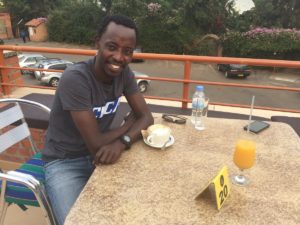Meet Sherline Raaw, a young entrepreneur who created a Christian apparel business during the pandemic. Sherline first had been waiting tables for five years but knew that she didn’t want to be a server all her life. Tired of her life as a server, Sherline needed change. She decided to join the Air Force for stability and for their benefit. During her time joining the Air Force, Sherline also just got proposed to by her boyfriend of four years, while still in tech school, and trying to move out of her parents’ home. Despite her busy schedule. Sherline still found time to be with God.
She kept having this idea of Lavish by Grace in her head, but she didn’t know where to go. Asking God for guidance in her busy schedule, she looked to Him for what to do next. Right in 2019, when the pandemic hit, everyone was at home. That’s when she really found time and got to design her brand more. During her time at home, she noticed the lack of minimal Christian apparel and decided to aim her business in that direction. She started creating minimal(istic) matching loungewear that still embodied Christ. Her own idea took 2 years before she launched it. This idea had been brewing for quite some time, but thanks to Covid, she really got to invest her time in it.
The mission of Lavish by Grace is, “we live in a world where everything runs out and everything has a limit. However, God’s grace, which has been lavished upon us, does not. There is no better word to describe it than lavish. Lavish by Grace was founded with the intention of sharing my faith and raising awareness of Jesus Christ using minimal and comfortable clothing,” says Raaw. This beautiful idea brings a strong community together with simple and comfortable clothing.
Despite her busy schedule, Sherline was able to launch Lavish by Grace, woman apparel, during the pandemic. She wanted it to be more than just minimalist, cute loungewear for woman though. She wanted to create a community centered on Christ and comfort. With her company, she’s done well to sell at high-quality apparel while continuing to foster the Christian mindset. Her business is only at its wonderful beginning!



